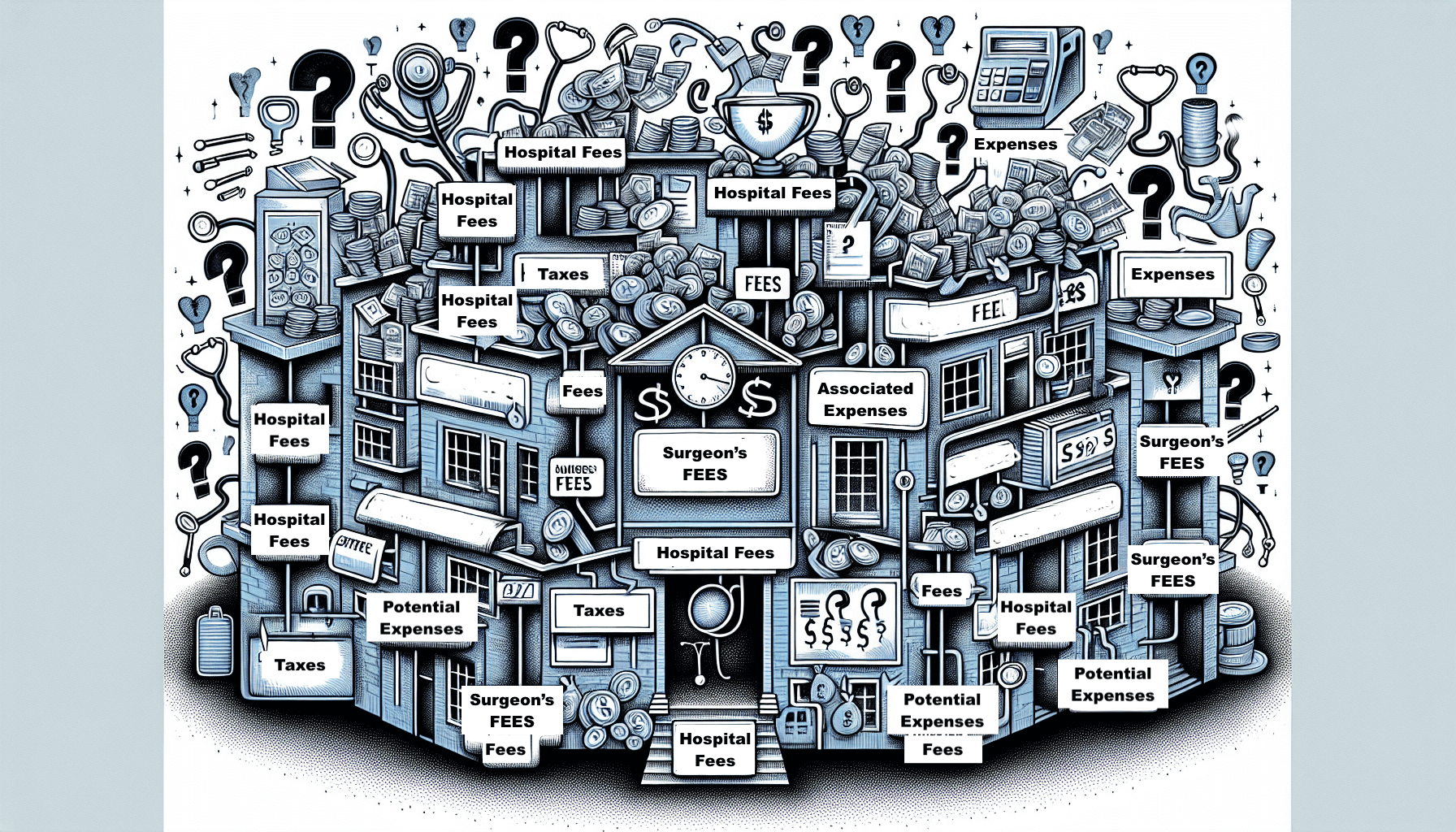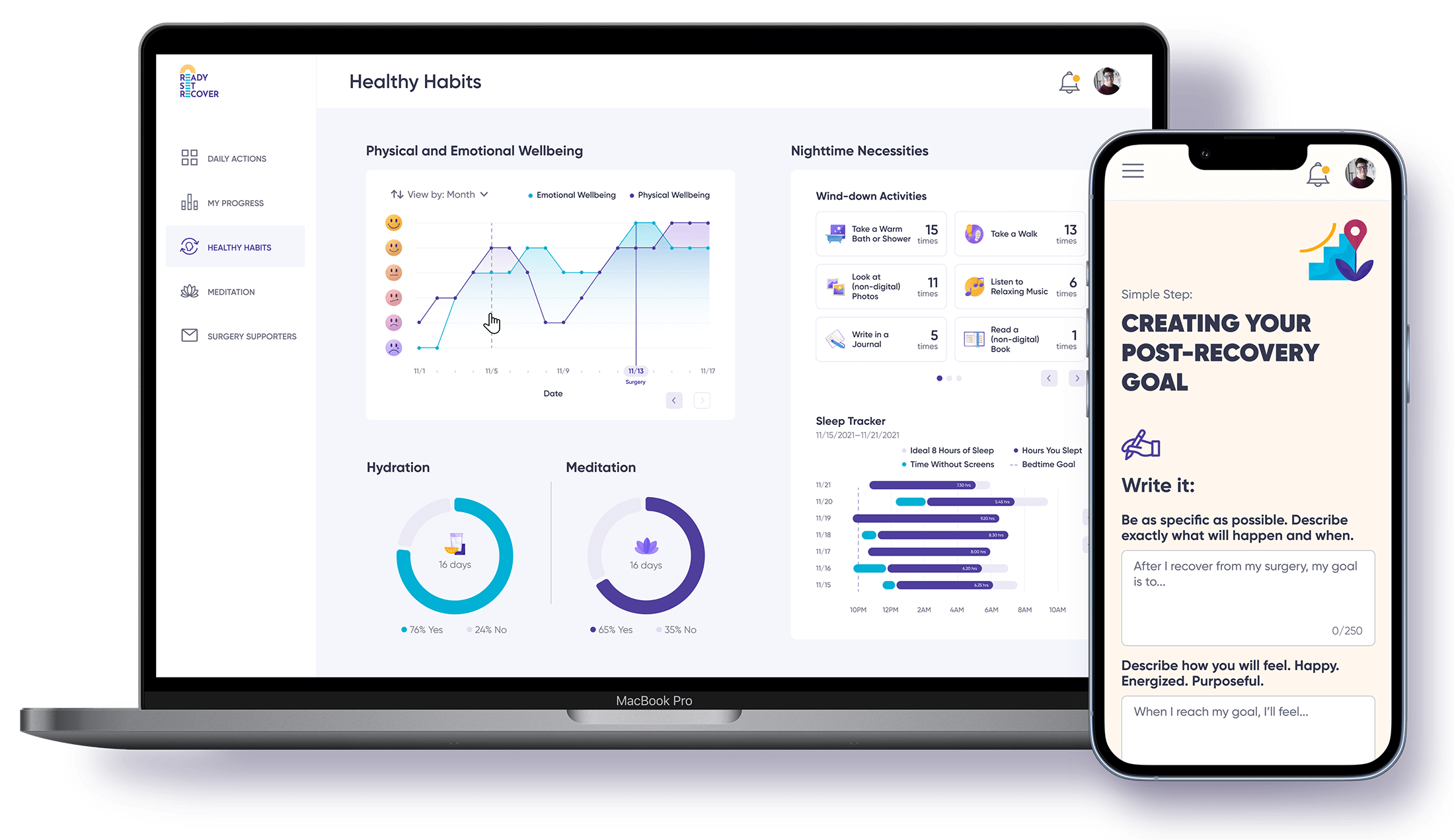50 Key Questions to Ask Before Surgery for Peace of Mind


Facing surgery, you may feel overwhelmed with what to ask your doctor. What risks should you consider? What recovery can you expect? These are critical questions for a safe and predictable surgical outcome. This article cuts through the uncertainty, listing 50 essential questions to ask before surgery, ensuring you’re fully prepped and peace of mind is within reach.
If you’re unsure where to start or need help formulating your questions, you can also explore how others are using AI for medical advice to feel more prepared before meeting with their surgeon.
Key Takeaways
It’s important to understand the details of your surgical procedure, including the reasons for the surgery, steps involved, anesthesia used, and potential risks and benefits, to make an informed decision and set appropriate expectations.
Evaluating your surgeon’s expertise is essential; verify their board certification, qualifications, and experience, particularly with the specific surgery you need, to ensure the best possible outcome.
Proper preparation for surgery encompasses a wide range of activities including pre-surgery tests and consultations, lifestyle and medication adjustments, and understanding the financial aspects, such as insurance coverage and out-of-pocket expenses.
Questions to Ask Before Surgery: What You Need to Know
Understanding your procedure isn’t just about curiosity—it’s about your health and peace of mind. Having the right questions to ask before surgery helps you make informed decisions, ease anxiety, and prepare for what’s ahead. Whether you’re concerned about risks, recovery, or alternative options, getting clear answers from your doctor will help you feel more confident and in control.
For example, if you're facing Gallbladder Surgery, reviewing a procedure-specific guide in advance will give you more clarity on what to ask and expect.
When it comes to your health, there are no silly questions to ask before surgery. The goal is not just to have your questions answered, but to understand the answers.
Surgical options and techniques

When it comes to surgery, one size doesn’t fit all. Different surgical options and techniques can be employed for the same medical condition. You should consider these options and confirm that an accredited healthcare facility will carry out the surgery.
Anesthesia is an integral part of many surgical procedures. Knowing the kind of anesthesia to be used for your surgery can aid in better preparation. There are different types of anesthesia, including:
Local anesthesia: used to numb a smaller area for minor procedures
Regional anesthesia: blocks pain in a larger area of the body, such as an arm or leg
Monitored anesthesia care (MAC): sedation is administered through an IV and the patient remains drowsy but conscious
Risks and benefits
Surgery, like any medical procedure, comes with its own set of risks and benefits. Recognizing these is fundamental for assessing the pros and cons and deciding wisely. Typical side effects of surgery include swelling and soreness at the surgical site, while potential risks could range from infection and bleeding to complications related to anesthesia.
The benefits of surgery can be as varied as providing temporary relief or offering permanent solutions for medical issues. In some cases, a follow-up operation may be required, but the benefits can greatly enhance the quality of life for many patients. Engaging in a discussion with the surgeon about these potential outcomes and complications can provide valuable insight, and significantly contribute to your decision-making process.
It is important to weigh the potential benefits against the risks and potential complications of surgery before making a decision.
Evaluating Your Surgeon's Expertise

It's a great idea to consider the surgeon's board certification, their qualifications, and their area of specialty. These are not just fancy titles. They serve as an assurance that the surgeon, as one of the qualified healthcare providers, has undergone rigorous training and assessments, and possesses the essential proficiency required for surgical procedures.
Additionally, inquire about the surgeon’s area of specialization and the frequency with which they have performed the specific procedure required. This could have a substantial impact on the safety and success of your surgery.
However, it's worth noting that surgeons, like any professional, can sometimes be defensive when asked about their abilities and credentials. It's a delicate matter that needs to be approached carefully. You're not questioning their competence, but merely seeking reassurances for your peace of mind.
Here are some suggestions on how to approach this:
Be polite and respectful: Always maintain a respectful tone and attitude. Remember, you're not interrogating the surgeon but seeking information to make an informed decision.
Be clear about your intentions: Explain why you're asking these questions. Assure them that it's for your peace of mind and to ensure you're making the best decision for your health.
Ask open-ended questions: Instead of asking yes/no questions, ask open-ended ones. For instance, instead of asking "Are you experienced in this procedure?", you could ask "Could you tell me about your experience with this procedure?"
Use a neutral tone: Avoid sounding accusatory or confrontational. Instead, keep your tone neutral and non-threatening.
Remember, the goal is to build a relationship of trust and confidence with your surgeon. Your health and well-being are at stake, and you have every right to ensure that you're in capable hands.
Board certification and credentials
Board certification is like a stamp of approval. It signifies that a surgeon has demonstrated their proficiency in fundamental knowledge and abilities, validated through rigorous exams. It’s a guarantee that the surgeon possesses the essential training and proficiency required for surgical procedures.
But how do you verify this certification? This can usually be confirmed through the healthcare facility where the surgery will be conducted, or by consulting recognized medical boards or societies pertinent to the surgeon’s specialty. Remember, a board-certified surgeon translates to peace of mind for you.
Specialization and experience
When it comes to surgery, specialization matters. A surgeon specializing in your specific procedure will have a deep expertise and skill in that area. This leads to improved outcomes for patients, keeping up with the latest techniques and advancements, and a heightened comprehension of complexities and potential complications.
Therefore, don’t hesitate to inquire about your surgeon’s specialization and experience with the exact procedure you require. The frequency of performing the procedure indicates the surgeon’s ability to stay current and effectively handle any potential complications during surgery.
Getting Ready for Your Surgery
What does it mean to be well-prepared for your surgery? It involves following your doctor’s instructions leading up to the procedure, which may include avoiding certain medications, supplements, or substances. It also means having an open dialogue with your doctor about any concerns or questions you might have about the surgery, ensuring you have all the necessary information before the operation.
Pre-surgery tests and consultations
Pre-surgery tests and consultations are not just a routine part of the process. They have a critical role in securing successful surgical outcomes by helping to identify potential complications that could emerge during surgery if not addressed.
So, what can you expect during these consultations? A pre-surgery consultation generally involves a thorough discussion of your medical history, health habits, and previous encounters with surgery and anesthesia. This serves as an opportunity for you to ask about any aspects of the procedure and address any concerns prior to the surgery.
Lifestyle changes and medications
Making necessary lifestyle changes and medication adjustments before surgery is not just about ticking off a checklist. It’s about setting the stage for a successful surgery and smooth recovery.
These changes could involve:
Enhancing physical activity
Ceasing smoking
Shedding excess weight
Enhancing overall health
It’s also about engaging in a discussion with your surgeon regarding any necessary medication adjustments before your surgery. This will help ensure safety and mitigate the risk of potential complications.
Insurance and Financial Considerations

Whether it’s about checking eligibility, determining the need for prior authorization, completing required forms, or submitting a prior authorization request, understanding your insurance coverage can prevent unexpected financial shocks. Additionally, understanding the potential out-of-pocket expenses linked with the surgery and planning accordingly is a lot better than being surprised when the bill arrives.
Insurance coverage
Your insurance coverage plays a significant role in your surgical journey so be sure to verify your insurance coverage with your health insurance company for the surgery and discuss any limitations with your provider.
An insurance company often imposes restrictions or exclusions on surgeries that are elective, high-risk, or likely to result in complications. By understanding these restrictions, you can better plan your surgical journey and anticipate the anticipated costs present in potential outcomes.
Out-of-pocket expenses
While insurance coverage, such as an insurance or health plan, can significantly cushion the financial impact of your surgery, it’s important to be aware of potential out-of-pocket expenses. These are the healthcare costs for which you will be responsible, such as copayments, deductibles, and coinsurance.
The level of out-of-pocket expenses for a surgical procedure is influenced by various factors such as the nature of the surgery, ambulatory surgical center fees, surgery hospital fees, the total cost of medical and surgical care, and the financial implications for you and your family. Understanding these can help you plan your finances and make the surgical journey less stressful.
Recovery and Post-Op Care

Post-surgery recovery is a critical phase that often gets overshadowed by the surgery itself. However, with some advanced planning, this phase can be managed effectively, allowing you to focus on healing and rest.
Hospital stay and discharge
The duration of your hospital stay and the discharge process are key aspects of your recovery. Being aware of what to anticipate can assist you in preparing for a seamless transition from the hospital to your home.
Whether it’s understanding the potential length of your hospital stay, the post-surgery expectations for the initial days, or the subsequent weeks and months, being well-informed can aid in preparing for the post-procedure period and resuming regular activities.
Home care and assistance
Home is where your recovery truly begins. It’s where you’ll spend the majority of your post-surgery days, and it’s crucial to arrange for adequate care and assistance during this period.
Depending on the kind of surgery you undergo, you may need to make significant short-term adjustments. These could range from managing feeding tubes, intravenous (IV) lines, and drains, to caring for wounds. You might also need assistance with everyday tasks that may be difficult to perform on your own. Having help at home can greatly aid in a smooth and quick recovery.
Physical therapy and follow-up appointments
Physical therapy and follow-up appointments are not just routine post-surgery steps. They’re crucial for your recovery and long-term health. Physical therapy, for instance, is a key component in regaining mobility and strength after certain surgeries. It's a process that aids in improving your physical function and fitness level. The exercises and techniques used in physical therapy can make a significant difference in speeding up recovery and returning to normal activities.
Follow-up appointments, on the other hand, allow your doctor to monitor your progress and ensure that the healing process is going as expected. These appointments are an opportunity for you to communicate any concerns or issues you may be experiencing post-surgery. They also offer your healthcare provider the chance to identify and address any potential complications early, thereby preventing further health issues. These aspects of post-surgery care are essential in ensuring a successful recovery and maintaining your overall health.
These appointments serve several purposes, including:
Assessing treatment progress
Comparing results with patient goals
Answering questions
Determining outcomes from drug therapy
Evaluating recovery post-hospitalization
Making necessary treatment adjustments
These appointments ensure you’re progressing correctly towards recovery.
Second Opinions and Alternative Treatments
While your surgeon’s opinion is undoubtedly an expert one, seeking a second opinion from medical consultants can provide additional insight and options for your surgical decision. This not only aids in confirming the initial diagnosis and treatment plan but also offers reassurance and peace of mind.
It’s also worth exploring non-surgical treatment options. Alternatives such as medication, lifestyle adjustments, and other therapies might effectively enhance your condition without resorting to invasive procedures like surgery.
Seeking a second opinion
Seeking a second opinion from another surgeon is not a sign of mistrust in your primary surgeon. Instead, it’s about confirming the necessity and approach of the surgery, and exploring potential alternative treatments.
Remember, it’s your health and your body. You have the right to seek a second opinion and make an informed decision about your treatment. So, don’t hesitate to ask for a second opinion if you have doubts or simply want to explore more options.
Non-surgical treatment options
Surgery isn’t the only solution to your medical condition. There are a plethora of non-surgical treatment options that can offer significant relief and improvement.
Non-surgical treatments for managing your condition include:
Medications
Lifestyle changes
Physical therapy
Occupational therapy
Assistive devices
Alternative therapies
Discuss these options with your primary healthcare provider at the healthcare provider’s office to determine the most suitable treatment for your condition based on the healthcare provider’s responses.
The Right Questions to Ask Before Surgery Can Make All the Difference
This comprehensive guide has provided a roadmap for understanding and preparing for your surgery journey. From understanding your surgical procedure, evaluating your surgeon's expertise, preparing for the surgery, to understanding insurance coverage, and planning for recovery and post-op care, it's essential to ask the right questions and make informed decisions.
However, navigating the surgical journey can be overwhelming. This is where Ready Set Recover comes in. Ready Set Recover is a fantastic tool that creates an easy-to-follow framework for your surgical journey. It empowers patients to take more control by understanding the process in depth, which ultimately leads to less stress and optimal recovery. By using Ready Set Recover, you can ensure a smoother surgical journey, from preparation to recovery.
50 Questions to Ask Before Surgery
Questions About Surgical Options and Techniques
What are the different surgical options available for my condition?
Why is this particular technique recommended for me?
What type of anesthesia will be used and why?
What is the process of administering anesthesia?
Questions About Non-Surgical Treatment Options
What non-surgical treatment options are available for my condition?
How effective are these options compared to surgery?
What are the benefits and risks of these options?
How can these options improve my condition?
Questions About Risks and Benefits
What are the potential side effects and risks of this surgery?
How common are these risks and complications?
What are the potential benefits of the surgery and how likely are they to occur?
What will the surgery improve in terms of my health, mobility, or quality of life?
Questions About Lifestyle Changes and Medications
What lifestyle changes should I make before the surgery?
Are there any specific foods, activities, or substances I should avoid?
How can I improve my overall health before the surgery?
Are there any specific medications I should avoid before the surgery?
Questions About Your Surgeon's Expertise
How many times have you performed this specific procedure?
What is your success rate for this procedure?
What is your complication rate?
Questions About Board Certification and Credentials
What board certifications do you hold?
How can I verify your board certification?
What does your board certification mean for my surgery?
How often do you participate in continuing education?
Questions About Pre-Surgery Tests and Consultations
What pre-surgery tests will I need to undergo?
What is the purpose of these pre-surgery tests?
How should I prepare for these tests?
When will the consultations take place?
What can I expect during these consultations?
What should I bring to these consultations?
Questions About Hospital Stay and Discharge
How long will I need to stay in the hospital after the surgery?
What will the discharge process involve?
What post-surgery expectations should I be aware of for the initial days?
What should I expect in the weeks and months following the surgery?
Questions About Home Care and Assistance
What kind of care will I need at home after the surgery?
Who can assist me with this care?
What resources or services are available to help me manage at home?
How long will I need this level of care and assistance?
Questions About Physical Therapy and Follow-Up Appointments
What is the purpose of physical therapy and how can it aid in my recovery?
How often will I need to attend physical therapy sessions?
What can I expect during follow-up appointments?
How will these appointments help in assessing my recovery progress?
Questions When Seeking a Second Opinion
How can I seek a second opinion?
What should I ask the second surgeon?
What should I do if the second opinion differs from the first?
How can a second opinion help in my decision-making process?
Questions About Insurance Coverage
Are all of the doctors and hospitals/medical facilities in-network for my procedure?
What aspects of the surgery does my insurance cover?
Are there any restrictions or exclusions in my coverage that I should be aware of?
How much will I have to pay out-of-pocket for this surgery?
Are payment plans or financial assistance options available?
Frequently Asked Questions
What questions should I ask before an operation?
Before surgery, ask about the risks, benefits, and alternatives to the procedure. Understand the recovery process, potential complications, and what to expect with anesthesia. Also, ask about the surgeon’s experience and what happens if you choose not to proceed.
What are the don'ts before surgery?
Before surgery, it's important to avoid smoking, chewing tobacco, and drinking alcohol. Additionally, refrain from wearing makeup, nail polish, deodorant, perfume, scented lotion, eating food, chewing gum, or having any type of candy after midnight prior to the procedure.
Why is it important to understand the surgical procedure?
It's important to understand the surgical procedure because it helps manage expectations, prepares you for the recovery process, and allows you to participate actively in discussions about the best treatment options. This can help put you at ease and feel more in control of your healthcare decisions.
What are some alternatives to surgery?
Discuss with your doctor the options for conservative treatments like medication management and physical therapy as well as minimally invasive procedures as alternatives to surgery for your condition. These options can offer effective solutions with less downtime and potential for outpatient care.
Why is it important to evaluate a surgeon's expertise?
It's important to evaluate a surgeon's expertise to ensure they are board-certified, have relevant experience, and receive positive patient reviews, since this can greatly impact the success of the surgery.
What should I know about surgery costs and insurance coverage?
You should inquire with your insurance company to understand your coverage and ensure your surgeon, hospital and everyone involved in your care is in-network. Additionally, it's important to be aware of the total surgery costs and your financial responsibility beforehand.







